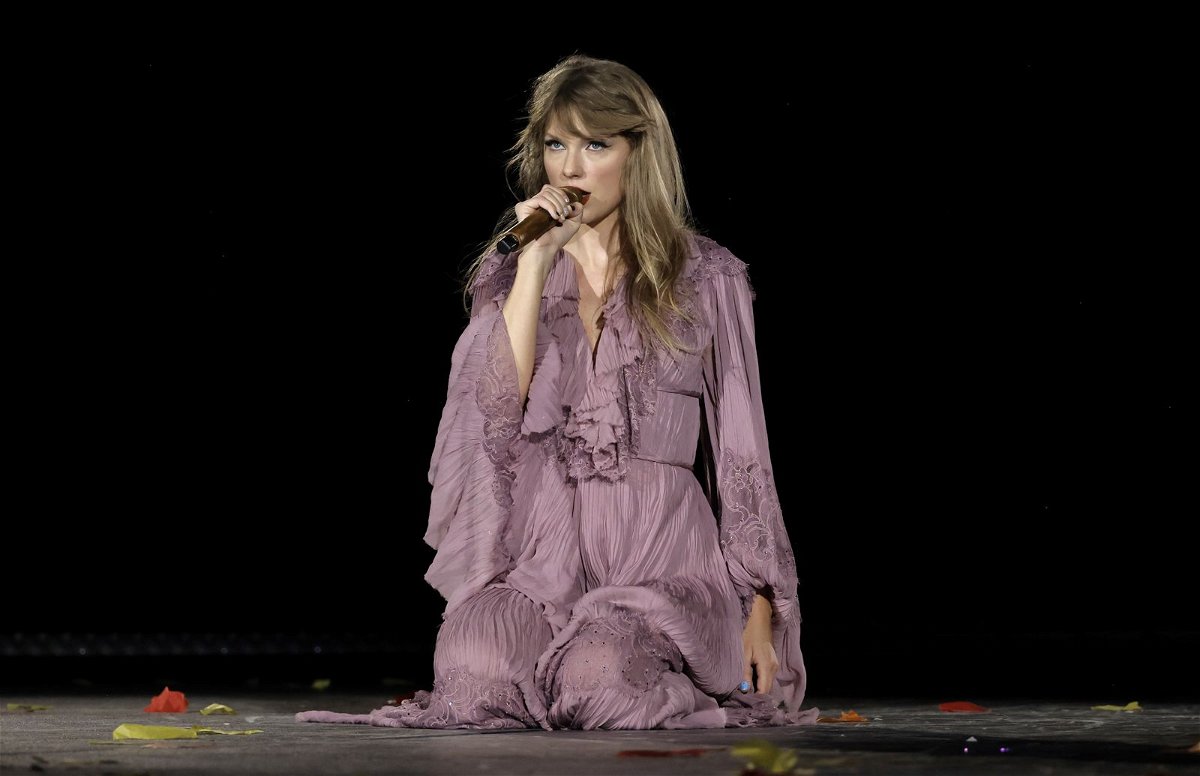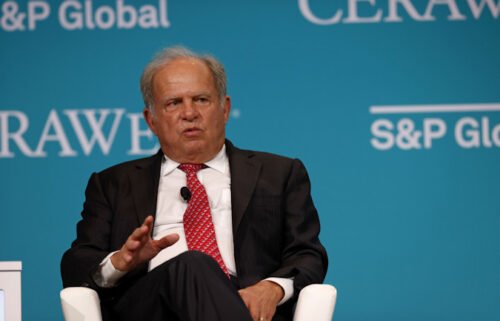The 17 most transformative media moments of 2023

Justin Nelson
New York (CNN) — It’s been a hell of a year.
2023 is quickly drawing to a close, and we have but one more issue of the newsletter until heading off into the new year.
But before we fully put 2023 in the rearview mirror, we wanted to take the opportunity to reflect on the last 12 months, which were absolutely brimming with consequential and disruptive moments across the media landscape. It’s as if a decade’s worth of stories were compressed into a single year.
Don’t believe us? Take a look at all the news we have collectively digested during the year:
- OpenAI sparked an arms race in Silicon Valley, thrilled Wall Street, shook up the news business, sparked copyright lawsuits, and prompted urgent meetings among world leaders over the emerging dangers posed by artificial intelligence. And the ChatGPT parent is just getting started, with the company slated to usher in seismic disruption to the media industry in 2024 and the years ahead.
- The WGA West and SAG-AFTRA staged historic strikes against the major Hollywood studios, grinding the entire industry to a standstill for months. The strikes underscored the sweeping media consumption changes upending the industry and highlighted the threat A.I. poses to actors, writers, and artists.
- Elon Musk self-immolated and destroyed the platform once known as Twitter in the process. The billionaire, who embraced conspiracy theory after conspiracy theory, launched a series of ugly attacks on his critics and took steps to curtail their free speech. Musk, simultaneously, welcomed back extremists like Alex Jones and elevated their reprehensible rhetoric to the masses. As a result of his behavior, a cascade of top companies ceased advertising on X, throwing the platform’s future into uncertainty and further destroying the reputation of Linda Yaccarino.
- Meta had a tremendous year, with its stock surging an astonishing 176% as the social media giant executed on Mark Zuckerberg’s commitment to a “year of efficiency.” The company, which was the subject of bruising headlines in years’ past, also found itself at the center of some rare positive coverage, mostly for its launch of Threads, its alternative to X.
- Fox News was exposed like never before as a trove of damning documents about the right-wing outlet’s behind-the-scenes activity came into public view via Dominion Voting Systems’ explosive lawsuit. On the brink of trial, the channel settled with the voting technology company for a historic $787 million. The network also settled an embarrassing lawsuit brought by former producer Abby Grossberg and continued its high-stakes legal battle with Smartmatic, which threatens to force another reckoning over the network’s its airing of 2020 election lies.
- Fox News fired Tucker Carlson in an astonishing decision that shook up the cable landscape and right-wing media universe. Upon his departure from Fox News, Carlson fully took off the mask, peddling outrageous conspiracy theories and hanging out with right-wing extremists like Alex Jones.
- Rupert Murdoch announced his retirement (though no one actually believes he has fully taken his hands off the wheel). The right-wing media titan transitioned from executive chairman of Fox Corporation and News Corporation into a chairman emeritus role, firmly placing Lachlan Murdoch on the throne as his chosen heir to carry on the family business.
- CNN found itself at the center of headlines. After just a little more than a year on the job, Chris Licht was fired as chief executive of the news network, the result of a series of severe missteps. The network also ousted star anchor Don Lemon. Looking for steady leadership, CNN’s parent company, Warner Bros. Discovery, appointed Mark Thompson as the outlet’s new boss. Amid the C-suite shakeup, the network launched CNN Max and debuted a new prime time lineup.
- Bob Iger tried to reposition Disney for the future, though he raised a mountain of questions in the process. The leader of the Magic Kingdom floated over the summer selling the company’s treasured linear television assets, though the year ended with him signaling an offloading of channels like ABC might not be in the cards. Iger also teased ESPN’s direct-to-consumer streaming future, moved to acquire Comcast’s remaining stake in Hulu, and conceded that brands like Marvel have suffered from an over saturation of content.
- Iger has also been busy on the information wars battlefield. Disney sued the state of Florida and Gov. Ron DeSantis for allegedly weaponizing the government’s power to retaliate against the company for exercising its First Amendment right to free speech. Though Iger did give credence to some of Disney’s conservative critics by acknowledging that he believes Disney strayed from focusing primarily on telling good stories and waded into the advocacy space.
- The era of cheap streaming came to an end. Every major streamer (Disney+, Paramount+, Max, Peacock, and Netflix) raised their prices in 2023, pushing customers to the more lucrative advertiser-supported tiers.
- The David Zaslav-led Warner Bros. Discovery officially put its storied brands under one roof, announcing the Max super-streamer in the spring. The service packaged content from HBO, Warner Bros. Pictures, and Discovery into one streaming offering. Later in the year, Max added live sports and news to the app, making it resemble the traditional bundle ever more.
- “Barbenheimer” proved that the box office isn’t quite dead. The viral trend in which people saw a double feature of “Barbie” and “Oppenheimer” boosted the box office to great heights over the summer.
- Taylor Swift commanded the world’s attention. The music icon sent jolts through the economy with new albums, the “Eras Tour,” a smash hit concert film, and more. She also managed to somehow outshine the NFL, going public with her relationship with Kansas City Chiefs tight end Travis Kelce.
- News organizations deployed journalists to cover two wars, one in Eastern Europe and the other in the Middle East. The Israel-Hamas war, in particular, has taken a toll on newsrooms, having claimed the lives of 64 news workers, according to the Committee to Protect Journalists, the deadliest conflict for journalists in decades.
- Fred Ryan departed The WaPo and owner Jeff Bezos appointed a new chief executive and publisher of the national newspaper, William Lewis. The outlet, which is working to cut its workforce by 10%, has been struggling to find its footing since Donald Trump exited the White House.
- The news industry suffered more cuts, particularly toward the end of the year. Condé Nast, The Washington Post, Yahoo News, Vox Media, and others slashed their workforces, resulting in nearly 2,700 staffers at news companies losing their jobs — a high not seen since the 2020 pandemic. The painful cuts contribute to ever-growing news deserts and raise concerns about an informed electorate at a time when anti-democratic candidates are looking to seize power in election contests from coast to coast.
The-CNN-Wire
™ & © 2023 Cable News Network, Inc., a Warner Bros. Discovery Company. All rights reserved.



